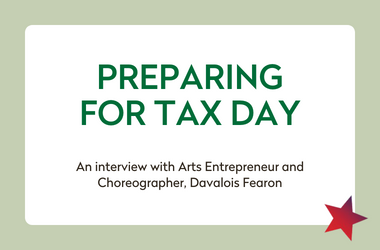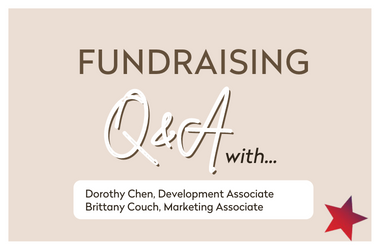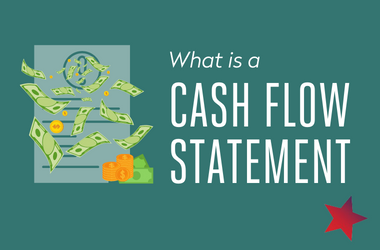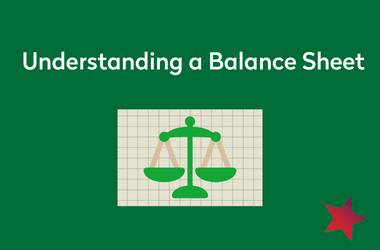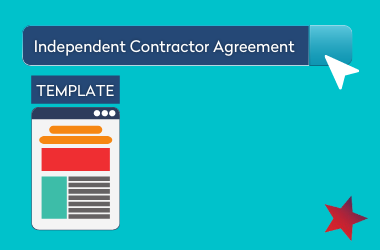Questions to Ask Potential Board Members
How to recruit new board members by asking the right questions.
Congratulations. Let’s say you have found a few ideal candidates to serve as new board members. What now? Set up a meeting with them to discuss their interest. Ideally, this will be in person (or on video) and will include someone from staff leadership (ED or CEO) and one or two people from the board recruitment committee.
The conversation should be very friendly and comfortable (this is not a job interview). This is a volunteer position so you want to make them feel appreciated and valued. You also want to convey what they will get out of the experience of being on the board (comradery, prestige, inside access, as well as the fact they are making the world a better place through their service). Keep it engaging but be sure to cover the following questions so you and the board prospect are crystal clear about what it means to serve on your board.
Sample questions for new board member interviews:
1. Why do you want to serve on this board?
This is the most important question. You want board members to have a real passion for the mission of your organization. They need to understand what it is you do and why you do what you do. You don’t want board members who are there just because a friend asked them. They will quickly get disenchanted if the mission is not critical to them. Really take the time to listen to their answers and find out what gets them excited, why they are drawn to your organization, and what they want to bring to the board.
2. Are you willing to make a personally significant financial contribution to the organization?
This is also a critical question. It is my view that every non-profit board member needs to make some sort of personally significant contribution to the organization. The amount can vary because everyone’s personal resources vary, but a financial contribution needs to be made and you need to make that very clear from the very beginning. Ideally, your organization will be in its top three philanthropic priorities (school, place of worship and board affiliation are standard). Stress the fact that it is very important to have 100% board contribution because foundations often ask for this information in a funding application. (The thinking here is if the board doesn’t believe in the mission enough to support it financially then maybe that is not a good sign!)
While talking about their personal giving, it is also important to let them know how the organization generally fundraises. Do you have an annual gala or fundraising event? Do you do an end of year appeal? Do you do a separate board appeal? Having a frank conversation with them about how and when they would like to support the organization right from the beginning will take away that awkward guesswork.
A word about “give/gets”. I don’t like them. A “give” limits your pool of candidates if it is too high and if it is too low, it can limit what a board member with a higher capacity might give. And the “get” can be so confusing (whose friend was that who gave to the gala? Did that person actually give because the board member asked them? etc). Some people understand it to mean that if they “get” they don’t have to give. Instead, I encourage transparency from the beginning about the personally significant gift and the obligation to help fundraise for the organization.
3. On which committee would you like to serve?
I love this question because it lets the prospect know this is a well organized and active board and members are expected to participate in the work and governance of the organization. This question will also let you know what they are interested in and how you can effectively engage them. Some of the usual committees are development, marketing, governance, finance, board recruitment. Each committee should have a chair and several active members.
I had a friend who was on a board of a small arts organization. She was an expert in marketing but was never asked to help with the marketing of the organization. She didn’t want to presume they wanted her expertise and the organization didn’t want to seem needy by asking for her help. Because they didn’t have the conversation, they all missed out on what could have been a mutually beneficial experience. My friend felt like they just wanted her on board for her contributions and she ultimately left the board. Don’t ever treat a board member like an ATM machine!
4. Are you willing to introduce your friends to the organization and bring them to events or performances?
This question gets to their board obligation of being a good ambassador and fundraiser for the organization. Not everyone is comfortable with doing actual fundraising solicitation, and that is fine, but they should all be comfortable inviting friends and colleagues to events and generally be comfortable sharing the wonderfulness of the organization.
5. Do you fully understand the obligation (financial and otherwise) that you are agreeing to in order to serve on this board?
This question cements their understanding of their obligation and it gives them a chance to ask their own questions. It will serve you well and will ensure they have a better and more productive board experience if everyone is very clear of expectations.
While others may come up during the interview, these are the ideal questions I think are important for you to ask board prospects. Keep it conversational and friendly, and don’t scare them away with an interrogation. Finding out this information and being transparent is important to the board member interview.
NEXTSTEPS GUEST WRITER: MARY HEDAHL | 1.23.21
Mary Hedahl is a development professional who has fundraised for the arts, social justice, civil liberties, human rights, and the environment for over twenty years.
Related Blog Posts
Preparing for Tax Day
Preparing for Tax DayAn interview with Davalois Fearon In preparation for Tax Day, we talked with Davalois Fearon about her experience working with Pentacle, and how it has helped her with her taxes and gain overall financial health, especially through Fiscal...
Planning A Fundraising Event
Planning A Fundraising EventEvent fundraising can be a great way to raise funds There are a number of ways to fundraise money for an organization or cause. One of the most collaborative ways to fundraise is by hosting an event. There are many steps to consider when...
Understanding A Cash Flow Statement
Understanding A Cash Flow Statement What is a Cash Flow Statement? A Cash Flow Statement is a financial statement that tracks the movement of a company’s cash over a selected period of time. This is an all-inclusive statement because it includes the inflow and outflow...
Understanding A Balance Sheet
Understanding a Balance SheetWhat is a Balance Sheet? A Balance Sheet is a financial statement that summarizes the company’s assets, liabilities, and equity at a specific point in time. The Balance Sheet is an essential tool used by organizational leaders, Board of...
How to create your own bookkeeping system for arts businesses
How to create your own bookkeeping system for arts businessesManaging your organization’s finances can tend to be overwhelming. Who gave us funds for what? Who is getting paid for their services? How do I show a final report to stay compliant with the grant I...
What is an Independent Contractor?
What is an Independent Contractor?What types of professions work as Independent Contractors? In the professional services world, we know that lawyers, doctors, accountants, and others often provide their services to the general public as independent contractors....
Pentacle’s nextSteps is supported, in part, by public funds from the National Endowment for the Arts, the New York State Council on the Arts with the support of Governor Andrew M. Cuomo and the New York State Legislature, and the New York City Department of Cultural Affairs in partnership with the City Council. Pentacle receives private support for nextSteps from the Booth Ferris Foundation, the Howard Gilman Foundation, the Rockefeller Brothers Fund, and the New York Community Trust.


